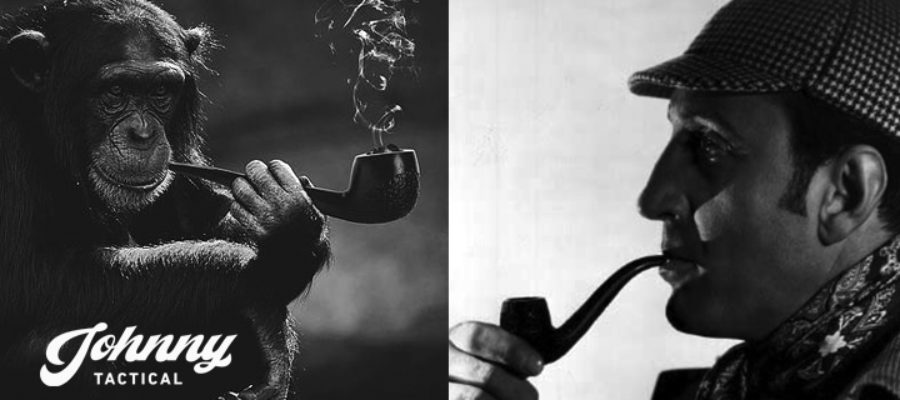There is no more important person in your police department than your Field Training Officer. They can make or break those new hires you are so worried about.
Hiring and retaining police officers is a hot topic right now. The national climate for law enforcement is bleak at best while cities and towns stretch their resources thin like butter over too much bread. They are desperate to attract viable candidates to fill vacancies so that they can relieve the strain on the men and women they do have.
The Bar And The Bus
Lately it seems that the bar has been lowered in order to get more applicants in the door. But the truth is this job is not for everyone. Some people may get hired who have the right intentions but they may not be cut out for it. It is a multi-faceted job that requires not only a broad range of skill sets, but also the right temperament, a strong moral compass, and integrity. Departments as a whole need to be selective of who they hire — maybe now more than ever — and maintain the highest standards. Lowering the bar will only cause exponentially more problems in the long run.
But hiring and retaining a warm body is not enough. We must hire and retain the right people while simultaneously not hiring and firing the wrong people. That is how you shape your department’s culture and the public’s opinion: one officer at a time.
Jim Collins in his best-selling book Good To Great used the analogy of a bus when describing how to take a business from mediocre to exceptional. In his analogy, the bus is the organization, the bus driver is the CEO, the passengers are the employees, and the vision of the organization is their destination. To cultivate a great culture, increase productivity, create a great place to work, and to serve the customer, it is not enough just to have a visionary CEO with an amazing destination in mind. You have to get the wrong people off the bus, get the right people on the bus, and then get the right people into the right seats. That means hire the good, fire the bad, and put your people in the right roles — like the role of an FTO.
Throwing Bones
Too often departments resort to bone-throwing in a sorry attempt to boost the morale of floundering, grumpy senior officers by sending them to FTO school. I’m sure it’s done with good intentions but when that happens the department is undermining its long-term goals for short term gains.
Sure, it doesn’t take Super Cop to teach a rookie how to fill out forms, complete reports, and learn the law. A talking monkey can do that. But this job is so much more than filing paperwork and counting beans. An FTO does more than just regurgitate department policy and procedure, they are the example and a mentor. If you don’t want to see a particular officer replicated, don’t make them an FTO. Your new hires are far more likely to mimic what their FTO does than what they say. If you have kids, you have seen this firsthand. You can tell your children all day long not to say that word or do that thing, but if you say it or do it, you can be sure they will too.
Monkey See, Monkey Do
When our kids were little my wife used to say a phrase in Chinese that roughly translates to, “Don’t light a match in front of a monkey.” Or in other words, Monkey see, monkey do. It simply means that you lead by example because it’s your example that will be followed, not your words. And so your FTOs must lead by example, not by fiat or decree. If your FTO is heavy handed, so will your trainee. If your FTO is a creative writer and facts and circumstances magically change once they hit paper, don’t be surprised when the new guy or girl does the same. If your FTO is a bully, guess what?
I was fortunate to have good FTOs, but I have heard plenty of horror stories over the years. I have also seen the results and the consequences of an FTO’s influence, both good and bad, and can attest that it is real and it is long-lasting. Over 18 years of doing this job I have noticed five attributes of a great FTO:
1. Uncompromising Character
A person of character answers to a higher moral code, not the whims of the moment. They live what they believe at home and at work and live their lives from the inside out. They are not perfect but they are predictable. Their character holds fast like an anchor in a storm.
The guy that intentionally breaks things during a search, fudges the numbers on his detail slip, or picks on the little guy for sport — that’s the guy who has no business being an officer, never mind an FTO. Character is the non-negotiable quality you should look for at the outset and then cultivate throughout a career. It is the thing most desirable and yet almost impossible to teach.
2. Self-Controlled
As police officers we wield a lot of power; the power to restrain freedom, to use force, and to issue fines and penalties. All these, of course, within the confines and dictates of the law. It is not something to be taken lightly.
Self-control is the ability to choose not to act rashly or foolishly in the moment, but to restrain one’s emotional reactions and substitute instead a conscious choice that is fair and just. We cannot simply use our power to lash out just because we feel like it; that will get us into trouble sooner or later. Because so much hinges on how we act or react in the moment, it is critical that the FTO be able to control himself so that he can control the situation and set the example in the process.
3. Experienced
Experience does not equal time on the job. A year in a major city and a year in Mayberry are not the same. But you don’t need someone who’s seen it all, just someone who has seen enough to have the necessary experience to draw from. It would be nice to have someone who has been there and done that, but what is better is someone who can take the principles learned from their experiences and then apply them to situations they have yet to encounter. Let’s face it, this job is always throwing us curve-balls and there is always going to be situations we have never dealt with. It is the application of principles taken from experience that will win the day.
4. Competent
Just because someone has succeeded in not getting fired for 10 years does not make them a competent officer. Seniority alone is as about as useful as a screen door on a submarine.
Naval Commander Michael Abrashoff took over the worst ship in the Pacific Fleet, the USS Benfold, with low morale and the highest turnover rate in the Navy. One year later that ship with the same crew went from worst to first under Abrashoff’s leadership. In his book, It’s Your Ship, he wrote, “Give me performance over seniority any day of the week.”
Much like the military, police departments hold seniority in high regard — like a sacred cow. Seniority doesn’t get the job done or get it done right. I’m not saying seniority shouldn’t be respected, but I am saying that seniority doesn’t trump competence. And ideally, you want both.
5. Heart of a Teacher
If someone is a great officer that does not automatically mean they can teach someone else how to be one. Good teachers can distill complex problems and ideas to their most basic parts so that they can be digested and solved. Not everyone can do that. A good teacher should teach how and why to think, not what to think. We don’t want robots on our streets with no feeling and no discretion or cops using formulas to come up with answers. The problems we encounter are too fluid, too numerous, and too human to just apply a formula for everything. Police work is not a math problem. A great FTO will teach they why behind the what.
The Key To The Many
It will take time to solve the current law enforcement crisis. It will take fresh ideas from outside-the-box thinkers. I believe that effective change will not come from the outside-in through legislation, oversight committees, and policy change, but rather will come from the inside-out, through hiring and training the right people and through the personal growth and development of the individual officer — you and me. I believe that the key to the many, is the one.
To the Brass I say select your FTOs carefully. To the FTOs I say consider the example you are setting. To the officers I say strive for competence, self-control, character, integrity, and be quick to learn and ready to teach; the experience will come. And to all of us, myself included, I say we must lead ourselves before we can lead anyone else.
__________________________
- What was your FTO experience like?
- How did their example influence you?
- Is seniority a sacred cow in your department?
- How can these five attributes serve you in whatever role you play?
__________________________
Thanks for reading! Do you have a story that you think we could learn from and that you’d like to share with Johnny Tactical nation? Fill out the contact form and include your name, rank, and department, or email it to [email protected] and follow these guidelines:
– It must be a firsthand account
– True
– Have a lesson, principle, or tactic to apply
– Cleaned of names, dates, and places
– Include your call sign
If your story is selected and published in our blog you’ll get the credit using your call sign and we’ll send you a free Johnny Tactical morale patch.




Leave a Reply
Your email is safe with us.
You must be logged in to post a comment.